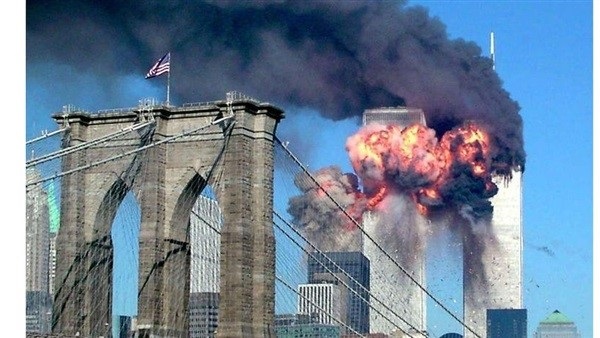9/11 attacks anniversary: Al-Qaeda still capable of staging attacks across continents

In the early days after
its founding, al-Qaeda carried out violent attacks, the most famous and vicious
of which were on 11 September 2001 in the US.
Years after that operation
and the war the US launched to undermine this organization, some questions
remain about the prospects of al-Qaeda and its ability to carry out long-range
attacks.
Transient terrorism
The 9/11 attacks
crystallized the concept of intercontinental terrorism with its offensive
strategies, such as the far and near enemy, which are the strategies used by al-Qaeda
in its kinetic shifts towards its opponents since its establishment.
Al-Qaeda became famous in
Afghanistan (its main stronghold) during the Soviet invasion of the country
(1979-1989).
The battle then shifted
from politics to manipulating religion, which eventually led to the emergence
of al-Qaeda with international data employing jurisprudence according to
political visions.
The bombings of August
7, 1998 were the first high-profile international attacks of the organization,
through which it chose to strike at the interests of the US in Africa.
The organization's
elements carried out two simultaneous bombings against the American embassies
in both the Kenyan capital Nairobi, and in Dar es Salaam, Tanzania, killing 224
people, and injuring thousands.
Three years later, the
organization carried out the bombings of the World Trade Centres in Manhattan
and attacked the Pentagon, killing thousands, and turning the strategies of the
war on terrorism into foreign plans based on attacking terrorists in their own
strongholds.
This led to the
military intervention of Washington and NATO in Afghanistan to fight the
Taliban which was ruling the country at the time, under the pretext of aiding
al-Qaeda in the attack, as well as the fragmentation of al-Qaeda.
Organization
capabilities
However, the military
and organizational capabilities of al-Qaeda and the extent to which it is able
to launch similar attacks remain the most prominent concern of American media,
despite the continuous marketing of the threats of ISIS in the West.
Western media views
al-Qaeda as an intellectual reference from which Takfiri organizations derive
theories that justify attacks on Western interests.
Amid these challenges,
the US withdrew in 2021 from Afghanistan, leaving the country to the Taliban to
take over after years of fighting them, while the agreement concluded between
the parties (Doha agreement) indicated that the prevention of attacks against American
and Western interests would be the most prominent condition for the American
exit from Kabul.
This exit was
immediately followed by the return of the Taliban to power in Afghanistan.









